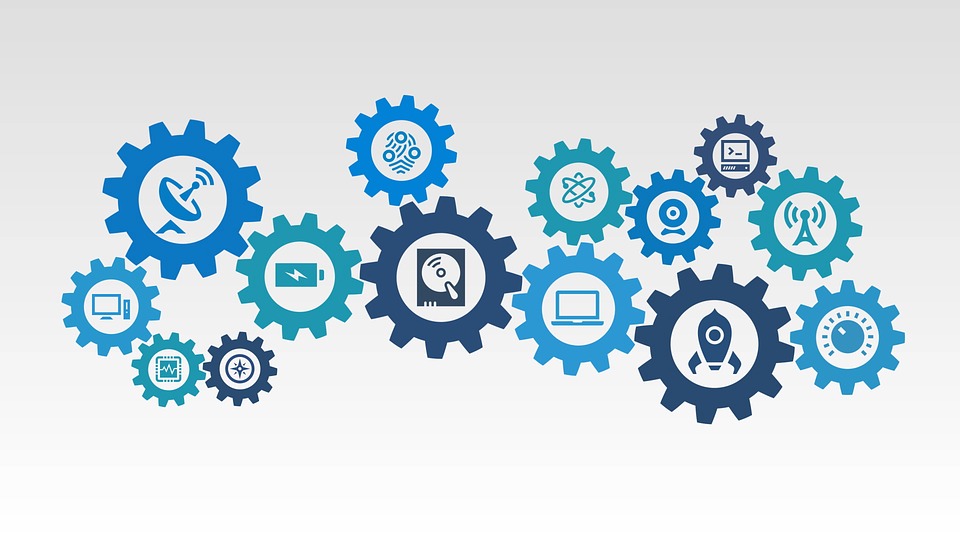AI Undress Photo Editor Free Porn: Understanding The Real Risks And Ethical Concerns Today
The digital landscape is changing at a rapid pace, and with it, the way we interact with images and information. When searches for things like "ai undress photo editor free porn" pop up, it really brings into focus a serious conversation we need to have about technology, ethics, and personal boundaries. It's not just about what AI can do; it's about what we, as people, choose to do with it, and the very real consequences that can follow.
So, you might be curious about what these terms even mean, or perhaps you've heard whispers about AI tools that can alter images in concerning ways. This kind of search term, "ai undress photo editor free porn," often points to a desire for specific types of image manipulation, but the reality behind such tools is a lot more complex and, frankly, quite troubling. It's about much more than just a quick edit; there are serious implications for privacy and safety.
In a way, the rise of generative AI, which MIT News explores in terms of its environmental and sustainability implications, also brings with it a whole new set of ethical dilemmas that we, as a society, are just beginning to grapple with. It's really important to look beyond the surface of what might seem like a simple search query and understand the deeper issues at play, especially when it comes to something as sensitive as image manipulation. We're talking about the potential for harm, and that's something we should all be aware of, you know?
Table of Contents
- What Are We Really Talking About?
- The Ethical Line: Why This Matters
- Legal Ramifications and Personal Safety
- The Human Cost of Misused AI
- Responsible AI Development and Usage
- FAQ About AI Image Manipulation
- Moving Forward with Digital Wisdom
What Are We Really Talking About?
When people look for "ai undress photo editor free porn," they're often thinking about artificial intelligence programs that can take a regular photo of someone and then, more or less, make it appear as if that person is undressed. These tools, or the idea of them anyway, use advanced AI models to generate new parts of an image that weren't there before, trying to make them look realistic. It's a bit like digital trickery, but with very powerful technology behind it, you see.
The core technology involves what are called generative adversarial networks, or GANs, and other deep learning methods. These systems learn from huge amounts of data to create new, synthetic content. For example, MIT researchers developed efficient ways for training more reliable reinforcement learning models, which is just one small piece of how complex AI really is. The problem here isn't the AI itself, but rather its potential for misuse, especially when it comes to creating non-consensual intimate imagery.
It's important to know that while AI can do amazing things, like helping developers focus on creativity and strategy, as Gu points out, the "hard part is everything else" beyond just code completion. This includes the ethical challenges that pop up when powerful tools are put into the wrong hands. So, while the technology might exist to manipulate images, the intent behind searching for "free porn" versions of these tools is where the real concern lies, actually.
The Ethical Line: Why This Matters
The idea of using AI to "undress" someone in a photo without their permission crosses a very clear ethical line. It's a profound invasion of privacy and a serious violation of personal autonomy. Basically, it takes away a person's control over their own image and how they are seen, which is a pretty big deal, don't you think?
These kinds of manipulated images, often called "deepfakes," can be used to harass, blackmail, or shame individuals. It's not just about a picture; it's about the real person behind it, and the very real emotional and psychological damage that can be done. Ben Vinson III, President of Howard University, made a compelling call for AI to be "developed with wisdom," and that wisdom certainly extends to how we use these powerful tools.
Consider, too, that the search for "free porn" versions of these tools often implies a desire to bypass legal or ethical safeguards. This kind of content creation, even if it's just for "fun," can have devastating impacts on victims, leading to reputational damage, emotional distress, and even social isolation. It's a stark reminder that technology, while neutral in itself, can be wielded for incredibly harmful purposes if we're not careful, you know.
Legal Ramifications and Personal Safety
Creating or sharing non-consensual intimate imagery, whether it's real or AI-generated, is illegal in many places around the world. Laws are catching up with technology, and governments are increasingly making it a serious crime to produce or distribute deepfakes that depict individuals in sexually explicit ways without their consent. The consequences can be severe, including hefty fines and even prison sentences, which is something to really think about.
From a personal safety standpoint, engaging with sites or software that promise "ai undress photo editor free porn" can also expose you to other risks. These platforms might be fronts for malware, phishing scams, or other malicious activities designed to compromise your own data or devices. It's a bit like walking into a digital minefield, so to speak, where the promise of something illicit hides a lot of danger.
Furthermore, even just searching for such content, or trying to access it, can put you on a path towards more harmful online behaviors. It can normalize the idea of violating someone's privacy, which really isn't okay. The internet, for all its wonders, can be a place where bad actors try to exploit curiosity or darker impulses, and staying safe means being very, very aware of these traps.
The Human Cost of Misused AI
The victims of non-consensual deepfakes often face immense emotional distress. Their sense of privacy is shattered, and they can feel humiliated, betrayed, and powerless. It's not just a digital image; it's their reputation, their relationships, and their mental well-being that are truly at stake. The impact can last for years, affecting their personal and professional lives in profound ways, too it's almost heartbreaking.
Consider the psychological toll: the constant fear that the image might resurface, the struggle to reclaim their narrative, and the feeling of being violated in a deeply personal way. AI often struggles with analyzing complex information that unfolds over long periods, but human suffering from such acts certainly unfolds over a very long time. It's a stark reminder that technology, when misused, can inflict deep wounds that are not easily healed.
Moreover, the existence of such tools contributes to a culture where consent is disregarded and individuals are objectified. It erodes trust in digital media and makes it harder for everyone to feel safe online. This has got to be one of the worst outcomes of advanced AI if not handled responsibly, because it harms the very fabric of how we interact with each other in the digital world, you know?
Responsible AI Development and Usage
The development community for AI has a significant role to play in preventing the misuse of these powerful tools. It's about building safeguards, designing systems that actively refuse to create harmful content, and prioritizing ethical considerations from the very start. As Gu noted, "An AI that can shoulder the grunt work—and do so without introducing hidden failures—would free developers to focus on creativity, strategy, and ethics." This really highlights where the focus should be.
Researchers from MIT's Computer Science and Artificial Intelligence Laboratory (CSAIL) are always working on novel AI models, pushing the boundaries of what's possible. But with that progress comes a responsibility to ensure these advancements serve humanity, rather than harm it. It's about developing AI with wisdom, as Ben Vinson III wisely suggested, and that means thinking about the societal impact of every new tool, obviously.
For users, responsible AI usage means understanding the capabilities and limitations of these technologies, and more importantly, recognizing the ethical boundaries. It means choosing not to engage with tools that facilitate harm, and actively reporting content that violates privacy or promotes non-consensual imagery. Learning more about AI ethics on reputable sites can really help you understand the bigger picture, too.
FAQ About AI Image Manipulation
Is it legal to use AI to "undress" someone in a photo?
No, it is generally not legal to use AI to "undress" someone in a photo without their explicit consent. Laws in many countries, including the United States and parts of Europe, consider the creation or distribution of non-consensual intimate imagery (NCII), including AI-generated deepfakes, to be a serious criminal offense. It's a direct violation of privacy rights, and you could face significant legal penalties, including fines and imprisonment, if you do this, honestly.
How can I protect myself from AI deepfakes?
Protecting yourself from AI deepfakes involves a few steps. First, be very careful about what personal images you share online, and with whom. Second, be skeptical of any unexpected or unusual images or videos that appear to be of you or someone you know, especially if they are out of character. Third, use strong, unique passwords for all your online accounts, and enable two-factor authentication whenever possible. Finally, if you believe you have been a victim of a deepfake, report it to the platform where it appeared and consider contacting law enforcement, because there are resources to help you, you know?
What are the ethical concerns surrounding AI image editors?
The ethical concerns around AI image editors, particularly those capable of generating explicit content, are quite profound. They include the blatant invasion of privacy, the potential for harassment and blackmail, and the erosion of trust in digital media. These tools can be used to defame individuals, spread misinformation, and cause severe psychological harm. It's about the fundamental disrespect for a person's autonomy and dignity, and that's a very serious issue, really.
Moving Forward with Digital Wisdom
The conversation around "ai undress photo editor free porn" is more than just about a search term; it's a window into the broader challenges and responsibilities that come with living in an increasingly AI-driven world. It calls for a deeper look at our own digital habits and the kind of online environment we want to create. We have to remember that while AI can be incredibly powerful, its true value comes from how we choose to use it, and whether that use is guided by ethical principles and respect for others, obviously.
The future of AI, as some suggest, depends on acknowledging that while certain technical feats might seem easy, the truly hard part is everything else – like ensuring ethical use and preventing harm. It means fostering a culture where digital wisdom is valued, and where the creation and sharing of content always respects consent and privacy. You can learn more about responsible digital citizenship on our site, and we also have more information about AI's impact on society.

BIBLIOTECA EPB: Celebracións do Día da paz

AI driven analysis of PD-L1 lung cancer in Southampton

OpenAI Codex CLI: 터미널에서 만나는 AI 코딩 에이전트